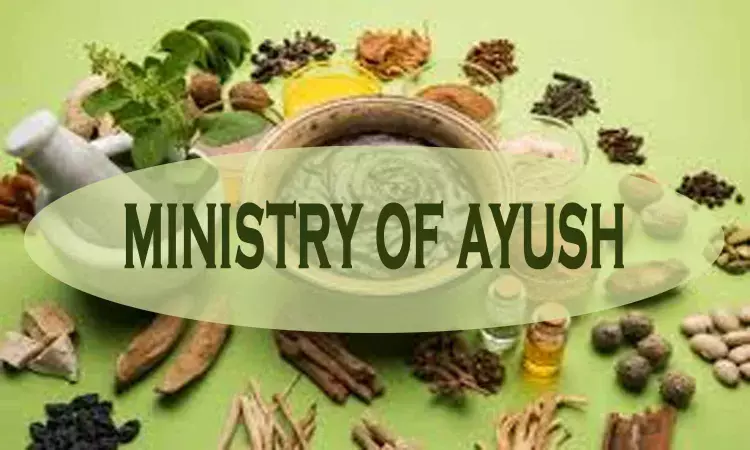- Home
- Medical news & Guidelines
- Anesthesiology
- Cardiology and CTVS
- Critical Care
- Dentistry
- Dermatology
- Diabetes and Endocrinology
- ENT
- Gastroenterology
- Medicine
- Nephrology
- Neurology
- Obstretics-Gynaecology
- Oncology
- Ophthalmology
- Orthopaedics
- Pediatrics-Neonatology
- Psychiatry
- Pulmonology
- Radiology
- Surgery
- Urology
- Laboratory Medicine
- Diet
- Nursing
- Paramedical
- Physiotherapy
- Health news
- Fact Check
- Bone Health Fact Check
- Brain Health Fact Check
- Cancer Related Fact Check
- Child Care Fact Check
- Dental and oral health fact check
- Diabetes and metabolic health fact check
- Diet and Nutrition Fact Check
- Eye and ENT Care Fact Check
- Fitness fact check
- Gut health fact check
- Heart health fact check
- Kidney health fact check
- Medical education fact check
- Men's health fact check
- Respiratory fact check
- Skin and hair care fact check
- Vaccine and Immunization fact check
- Women's health fact check
- AYUSH
- State News
- Andaman and Nicobar Islands
- Andhra Pradesh
- Arunachal Pradesh
- Assam
- Bihar
- Chandigarh
- Chattisgarh
- Dadra and Nagar Haveli
- Daman and Diu
- Delhi
- Goa
- Gujarat
- Haryana
- Himachal Pradesh
- Jammu & Kashmir
- Jharkhand
- Karnataka
- Kerala
- Ladakh
- Lakshadweep
- Madhya Pradesh
- Maharashtra
- Manipur
- Meghalaya
- Mizoram
- Nagaland
- Odisha
- Puducherry
- Punjab
- Rajasthan
- Sikkim
- Tamil Nadu
- Telangana
- Tripura
- Uttar Pradesh
- Uttrakhand
- West Bengal
- Medical Education
- Industry
Ayush Ministry launches Regional Raw Drug Repository for medicinal plant cultivation

This RRDR would play a stellar role in the collection, documentation, and authentication of raw drugs collected from the agro-climatic region, that is, the Southern Plateau Region.
New Delhi: Shri Shripad Yesso Naik, Union Minister for AYUSH and Minister of State for Defence inaugurated the Regional Raw Drug Repository (RRDR) for ASU&H Medicine (Southern Plateau Region) at the National Institute of Siddha today through a virtual event. Vaidya Rajesh Kotecha, Secretary Ministry of AYUSH presided over the program.
RRDRs are important components of the Centrally Sponsored Scheme of the National AYUSH Mission, which plays an important role in medicinal plant cultivation. As a step in this direction, the Ministry of AYUSH, through the National Medicinal Plants Board, initiated the establishment of the National Raw Drug Repository and Regional Raw Drug Repositories. NMPB have identified the National Institute of Siddha as the lead Institute with the Regional Research Institute of Unani Medicine, Chennai, and the Siddha Central Research Institute, Chennai as the Collaborating Institutes. This RRDR would play a stellar role in the collection, documentation, and authentication of raw drugs collected from the agro-climatic region, that is, the Southern Plateau Region.
Also Read: AYUSH, WCD ministries collaborate to eliminate malnutrition
There is a global resurgence in the traditional and alternative health care system. We in India are fortunate to have systems of medicine which date back to more than 3000 years and have deep-rooted societal acceptance. Ayurveda, Siddha, Unani, and systems of medicine are accessible to large segments of our population including those living in remote and interior areas.
Medicinal Plants form the major resource base of our indigenous health care traditions. Their relevance has grown substantially in the current pandemic scenario, thanks to their disease preventive effects. The outreach and acceptability of AYUSH systems, both nationally as well as globally, are dependent on the uninterrupted availability of quality medicinal plants based raw material. Though most of our raw drugs are commonly available, there is a lack of scientific documentation that makes research on these medicines very difficult. This also reduces the chances of commercial exploitation of these medicines.
Easy availability of authentic scientific data of the raw drugs will promote the research on the medicines belonging to the AYUSH system which will lead to further propagation of these systems.
The growth and acceptability of traditional systems require a robust infrastructure of hospitals, dispensaries, pharmacies, and manufacturing units so as to manufacture and dispense quality medicine. The country has more than 9000 manufacturing units for Ayurveda, Siddha, Unani, and Homeopathy medicine. However, the quality of medicines produced by these units critically depends upon the manufacturing process followed as well as the quality of raw material. The Government has made it mandatory for all manufacturing units to adhere to the Good Manufacturing Practices as notified under Schedule T of the Drugs and Cosmetics Act 1940. However, since more than 90% of the formulations under these systems of medicine are plant-based, what is critical is to ensure the sustained availability of quality raw material.
This RRDR will not only act as collection centers of raw drugs available and used in the southern region but also as an accredited reference library for authentication of raw drugs and establish standard protocols and keys for authentication of raw drugs used in the herbal industries. The project will be headed by Prof. Dr. R. Meena kumari, Director, NIS as the Principal Investigator and Dr. Zaheer Ahmed, Head of Institute, RRIUM, and Dr. Satyarajeswaran, Director (in-charge), SCRI, will be Co-investigators.
Also Read: Ayush Ministry body, Amity University collaborate to promote Ayurveda research
Medical Dialogues Bureau consists of a team of passionate medical/scientific writers, led by doctors and healthcare researchers. Our team efforts to bring you updated and timely news about the important happenings of the medical and healthcare sector. Our editorial team can be reached at editorial@medicaldialogues.in.


